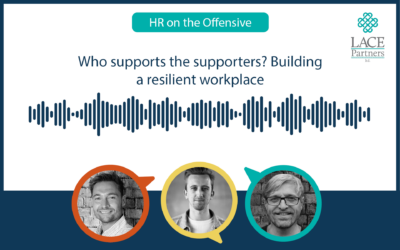Far too many projects fail. Go ahead and eyeball the stats, courtesy of the International Project Leadership Academy. The industry needs to wake up to what works – fostering the right habits, with the right ‘mindsets’.
All to often, KPIs aren’t being met, and intended benefits aren’t being delivered. And all this in spite of the countless best practice guides on what to do, what to avoid, and who to engage. It’s a travesty, but it’s hardly ‘news’. What we should really be thinking and talking about is why projects fail and how to ensure they thrive.
People resist change in times of stress
Here’s why so many projects fall short: as humans, we find it hugely difficult to change our habits, styles and tendencies when things get tough. It’s innate.
By their very nature, People Change programmes tackle highly emotive issues and areas. So called ‘soft’ skills are vital to their success. But as we know, these skills are harder to learn and much trickier to consistently apply than a project methodology.
I’ve been running projects for over 20 years, and have often seen well run, efficient projects fail to make an impact on the business at hand because, at the crunch point of implementation, people revert to type. They fail to win hearts and minds. They’re unable to truly connect. As a result, they don’t get the buy-in needed for long-term adoption and meaningful change.
The solution? Nurturing new habits, with the right mindset
Changing a team’s way of working is no simple task. There aren’t ‘5 steps to…’, ‘7 rules for…’ or an infographic that can magically resolve this inherent challenge. What’s needed is a fundamental change in habit, fostered and sustained throughout the duration of the project.
You want to make the behaviour easy to perform, so that people repeat it often and it becomes part of their daily routine
The good news is, People Change programmes tend to last a while. That gives you time to strategise and embed the habits that are necessary for success.
As Professor Wendy Wood, University of Southern California, highlights: “What we know about habit formation is that you want to make the behaviour easy to perform, so that people repeat it often and it becomes part of their daily routine.”
The LACE way – methodology plus mindset
With this in mind, our favoured approach is to support the right project methodology with the right mindset for the programme. It’s important to agree both the methodology and mindset early, and to instil it throughout the project team and their various individual styles and habits. This way, the programme gains its own habits which individuals can defer to and organise around, so everyone is embodying a shared ethos and working towards common goals.
Strategising a mindset isn’t new. A 2014 HR Magazine article explored the value of using this approach to define new business cultures, outlining the successes it can unlock. Applying the ‘mindset’ approach to a project environment can be just as impactful.
Four project phases, four mindsets
At LACE, we’ve pooled our extensive project experience and distilled our learnings and thinking into four distinct mindsets, each lined to a particular project phase.
We’ve found that when teams articulate and promote these phases during the course of a project, incredible things happen. We witness a remarkable symbiosis. Your communications style and approach to decision making are energised by these mindsets, and the mindsets themselves are reinforced by effective messaging and decision making.
Here’s a very quick snapshot of those 4 phases and mindsets:
- Project commissioning: Set your vision, articulate it and live it. Be a storyteller in every moment. Balance that with being data and insight driven.
- Design & build: Collaborate, collaborate, collaborate. Encourage connections. Embrace success and failure. Focus on simplicity, but don’t forget to embrace the details.
- Implementation: Challenge is ultimately your friend – be open to it. Be ready to adapt to change. Get to grips with the detail. Never underestimate the power of empathy, and instil it in all you do.
- Deployment: Focus on outcomes and benefits. Be challenging, but never critical. Be a coach and a partner.
Bringing the theory to life
So how to you put these ideas into action to make sure your project’s a winner? Here are a couple of tips to send you on your way:
- Define the mindsets early on, taking care to develop them with consideration for the existing culture of the business.
- Reinforce the mindsets regularly during programme discussions, using visual reminders.
Don’t be a failure statistic. Discover the power of mindsets to set transformative habits in motion, and watch your project thrive.
Further reading
Managing change vs managing adoption – hot tip: they aren’t mutually exclusive
Digital Adoption Solutions – what you need to know ahead of time…






